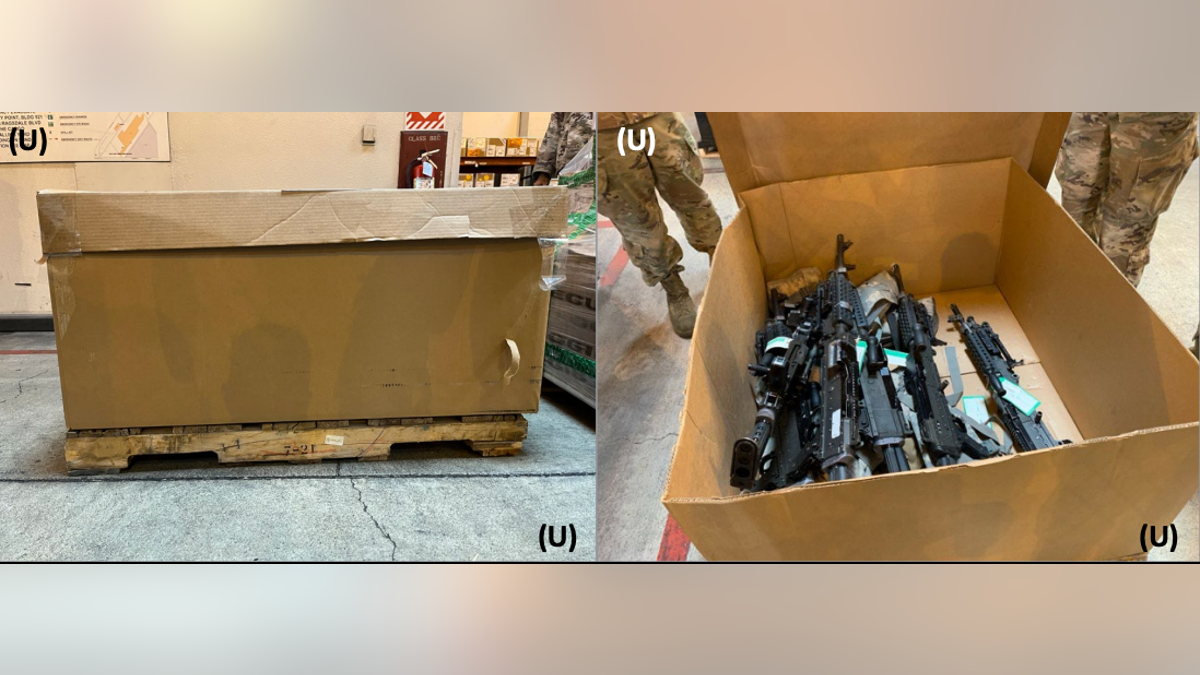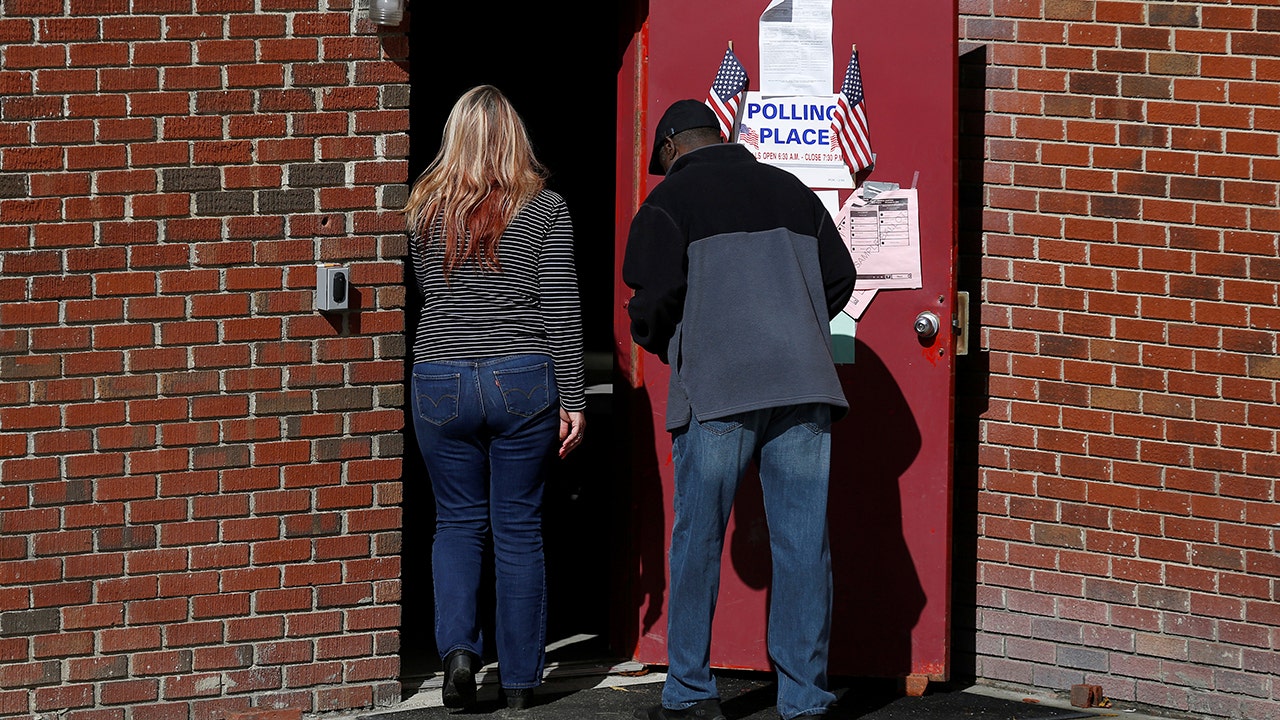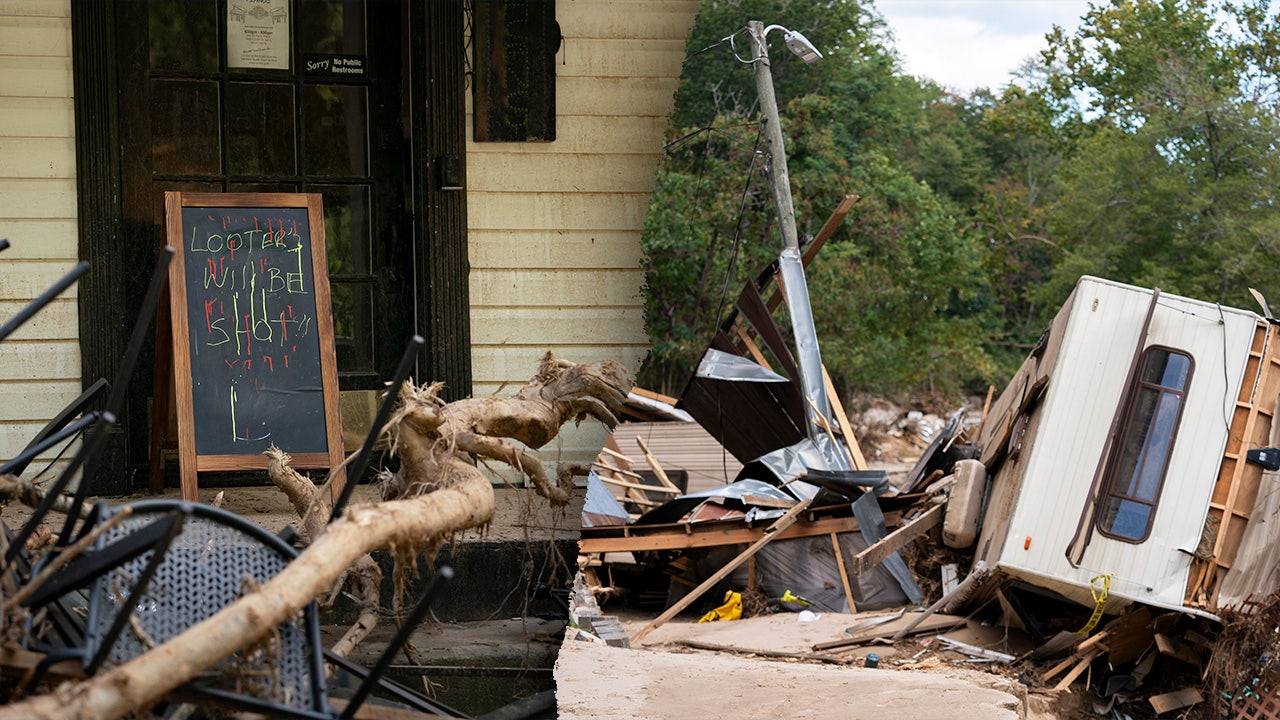FIRST ON FOX: Sen. Joni Ernst sent a letter demanding answers after a government report found the Defense Department (DOD) sent body armor covered in mildew and equipment from the 1980s to Taiwan.
The Pentagon inspector general found the U.S. had sent “wet and moldy body armor” to Taiwan to shore up its defenses ahead of an impending invasion from China, then spent an additional $730,000 trying to remedy the mistake.
“Delivering outdated and damaged military equipment to Taiwan is no way to treat a friend. Unfortunately, undercutting our partners and emboldening adversaries has become a staple of the Biden-Harris foreign policy doctrine,” Ernst, the fourth-ranking Republican in the Senate, said in a statement.
“Make no mistake, Beijing is laughing at, and taking full advantage of, the leadership failures of this administration. We need to bring back competency and strength in the White House to restore trust in our allies and partners while striking fear in our adversaries.”
CHINA HOLDS LIVE-FIRE DRILLS NEAR TAIWAN, IN ANOTHER SHOW OF FORCE
More than 340 out of 504 pallets of equipment sustained water damage as they sat at Travis Air Force Base in California. The U.S. Army didn’t facilitate delivery for two months after receiving the equipment.
The base did not have proper storage facilities, according to the report, and the pallets were exposed to blowing rain, fog, humidity and heat.
Of the 340 pallets, 120 were sent to Taiwan containing more than 3,000 mildewed body armor plates and 500 wet and moldy tactical vests.
The inspector general’s office observed the pallets had “visible mold spores, wrapped in plastic that had trapped water, facilitating further deterioration and mold growth.”
Taiwan authorities spent weeks trying to air out the gear, according to the report.
U.S. personnel told the inspector general’s office they spent $619,000 in labor and materials at the base to clean and dry the wet, moldy armor that had not been sent and another $113,000 to replace some of the equipment before it was sent to Taiwan.
The DOD inspector general concluded that between November 2023 and March 2024 the Pentagon failed to follow guidelines on delivering the equipment through the presidential drawdown authority, which allows the U.S. to send equipment from current DOD stocks.
“Had policies been followed, the Defense Department would have been able to provide Taiwan with military equipment in acceptable condition,” Inspector General Robert Storch said in a statement. “Instead, the equipment arrived in Taiwan damaged and moldy. Such performance risks eroding Taiwan’s confidence in the United States as a reliable source of assistance.”
Ernst noted the Trump administration approved fighter jets for Taiwan in 2019 that still have not been delivered.
“It took U.S. armed forces less time to plan, launch, and execute the liberation of Europe from the Nazis in World War II,” Ernst said.
After a two-year delay, Taiwan in July finally received the U.S. shipment of anti-tank weapons it had been promised. But the anti-tank missile launchers arrived without the proper missiles. The missiles Taiwan was forced to use with them had a low accuracy, prompting it to rethink their combat use.
The damaged equipment was part of a $345 million package the Biden administration announced in July 2023, the first drawdown the U.S. had committed to Taiwan.


ENCIRCLING TAIWAN WAS A SMOKESCREEN FOR CHINA’S REAL GOAL OF CONVINCING US NOT TO INTERVENE, EXPERT SAYS
The report determined there had been a breakdown in communication about whose responsibility it was to arrange the delivery flights to Taiwan and recommended the Defense Security Cooperation Agency, tasked with providing equipment to U.S. allies, come up with a standard procedure that clarifies responsibilities, timelines and quality control checks for deliveries.
As of May 31, 2024, the U.S. had not replaced the damaged body armor plates and tactical vests that had not arrived.
The report also found the shipment contained some 2.7 million rounds of ammunition that were manufactured in 1983. Some of the rounds were “poorly packaged,” while others were expired, the inspector general found.
Some of the rounds arrived in opened boxes, making it seem to Taiwanese officials that U.S. service members “cleared out stuff they didn’t want.”
Six M240B machine guns from the National Guard in Clovis, New Mexico, included in the shipment were dumped into cardboard boxes without any wrapping, according to the report.
Ernst demanded answers on what steps were taken to clarify whose responsibility it was to get out such shipments, to improve oversight and to expedite replacement of the damaged equipment. She also asked what the funding source was for the $730,000 used to fix the issue.
The report warned the mistake risked Taiwan’s confidence in the U.S. at a critical time when China threatens to invade at any moment.
China said it would carry out live fire drills in the Taiwan Strait on Tuesday, ratcheting up tensions that have reached a fever pitch since the re-election of the Democratic Progressive Party in Taiwan, a sign that voters continue to support resisting mainland China.
Taiwan’s premier, Cho Jung-tai, said Tuesday the drills, planned for an island about 100 miles from Taipei, risked “unnecessary tension.”
“No matter how large the scale of the drill is, they should not be frequent and close to Taiwan,” he told reporters. “This will only cause unnecessary tension.”













